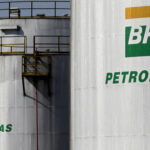Nigeria and Angola are taking the lead in Africa’s drive toward energy independence, according to the Africa Finance Corporation’s “State of Africa’s Infrastructure Report 2025.” Both nations are investing heavily in refining capacity to reduce dependence on imported fuel and boost domestic energy security.
In Nigeria, the massive 650,000 barrels-per-day Dangote Refinery is a transformative project. Once fully operational, it is expected to significantly cut Nigeria’s reliance on imported refined petroleum products. Combined with the planned revival of the Port Harcourt and Warri refineries between 2024 and 2026, Nigeria is poised to become a self-reliant powerhouse in oil refining.
Angola is also making strategic moves. The Cabinda Oil Refinery, a partnership between Gemcorp Holdings and state-owned Sonangol, will process up to 60,000 barrels of crude oil daily. This project is set to meet domestic fuel demand while reducing the country’s dependence on fuel imports.
To modernise Africa’s refining sector and meet cleaner fuel standards, an estimated $16 billion in investment is needed. This includes upgrades to aging infrastructure and expansion of refining capacity across the continent.
- Advertisement -
These efforts mark a major shift in Africa’s energy landscape. By boosting local production and refining capabilities, Nigeria and Angola are setting the stage for long-term energy security and economic growth.
Their progress serves as a blueprint for other African nations seeking to harness their natural resources, reduce fuel import bills, and create sustainable energy ecosystems.







